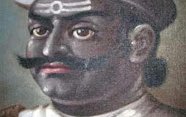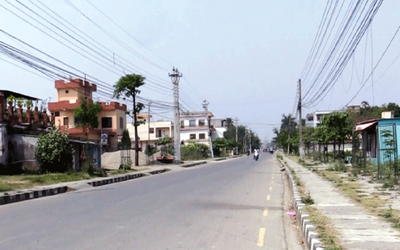Free and fair elections are one of the integral parts of democracy as people exercise their sovereign rights through the elections and choose their own representatives to rule. This is the reason ensuring free and fair elections is regarded as important.
However, like in all developing countries around the world, Nepal’s elections process is not free at all. After an intense research and empirical study, political scientist Professor Dhruba Kumar elaborates how violence dominates Nepal’s elections process.
“Representatives to public office are chosen through voting in a competitive election. Voting, in this context, is seen as an expression of a commitment of a person to the ideals that a group is formed with an advocates,” writes Kumar in his book.
The study is divided into six chapters. The first chapter is introduction followed by second chapter which reviews what elections foretell and how elections are held. The third chapter succinctly narrates the historicity of the electoral politics under democratic dispensations in Nepal. The fourth chapter deals with the election malpractices and violence. Professor Dhruba Kumar narrates how Nepal’s elections are dominated by violence. The fifth chapter deals with People’s Perspectives: Duality of Perception and sixth chapter is about elections and state building. The last chapter, by way of conclusion, critiques as features of democratic exercise and on the state building problematique in post-CA elections in Nepal.
Although several books were written in the last many years about the elections process of Nepal, this is the first of its kind book which analyzes all the elections processes of Nepal. Based on the facts and intense research, Professor Kumar’s book details all the elections held in Nepal, including the last CA elections held in 2008.
The book also discusses the role of political parties and state machinery in holding the elections. He draws the conclusion that Nepal’s elections are often held to win them and ruling parties always make efforts to rig them by using all kinds of means, including violence.
“Along with this, it also deliberates on the lessons learned from the elections held in the 1990s period and their implications in the future. The fundamental issue it delves on is the declining state capacity to curb electoral violence,” writes Dhruba Kumar.
This book is very useful to those who are interested in the political development and evolutionary process of Nepal as professor Kumar explains the elections process as a way to determine the legitimacy of political process.
- TANAHU HYDROPOWER PROEJCT: A Significant Achievement
- Apr 15, 2024
- AMBASSADOR HANAN GODAR: Sharing Pain With A Nepali Family
- Mar 30, 2024
- VISIT OF KfW AND EIB TO NEPAL : Mission Matters
- Mar 25, 2024
- NEPAL BRITAIN SOCIETY: Pratima Pande's Leadership
- Mar 24, 2024
- NEPAL ARMY DAY: Time To Recall Glory
- Mar 15, 2024
















